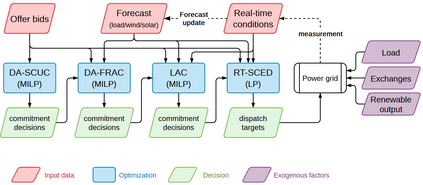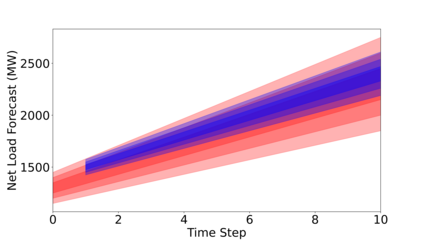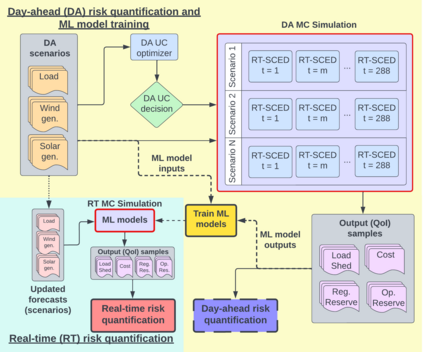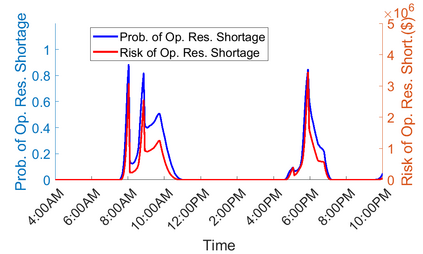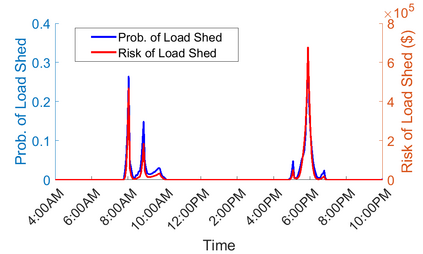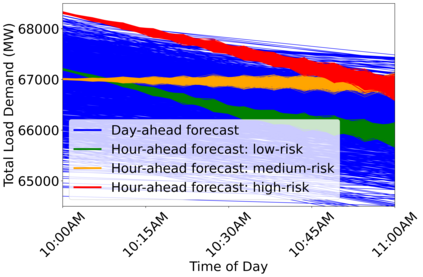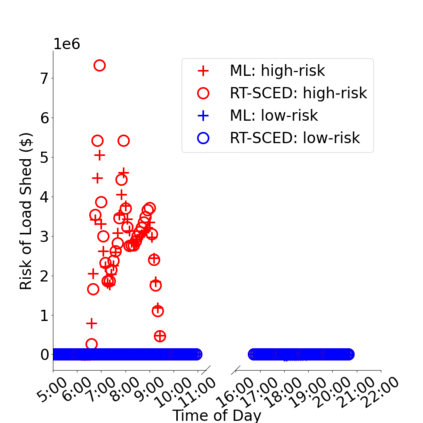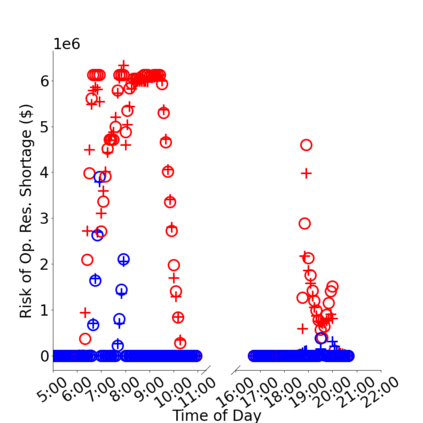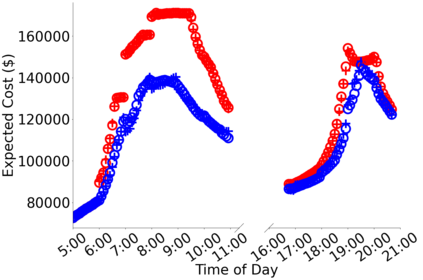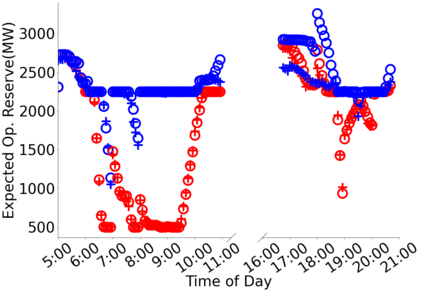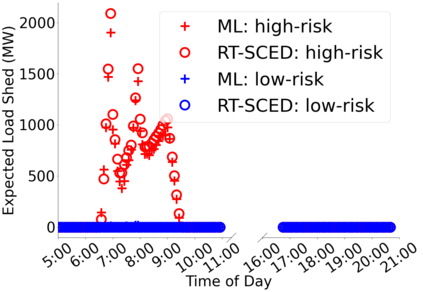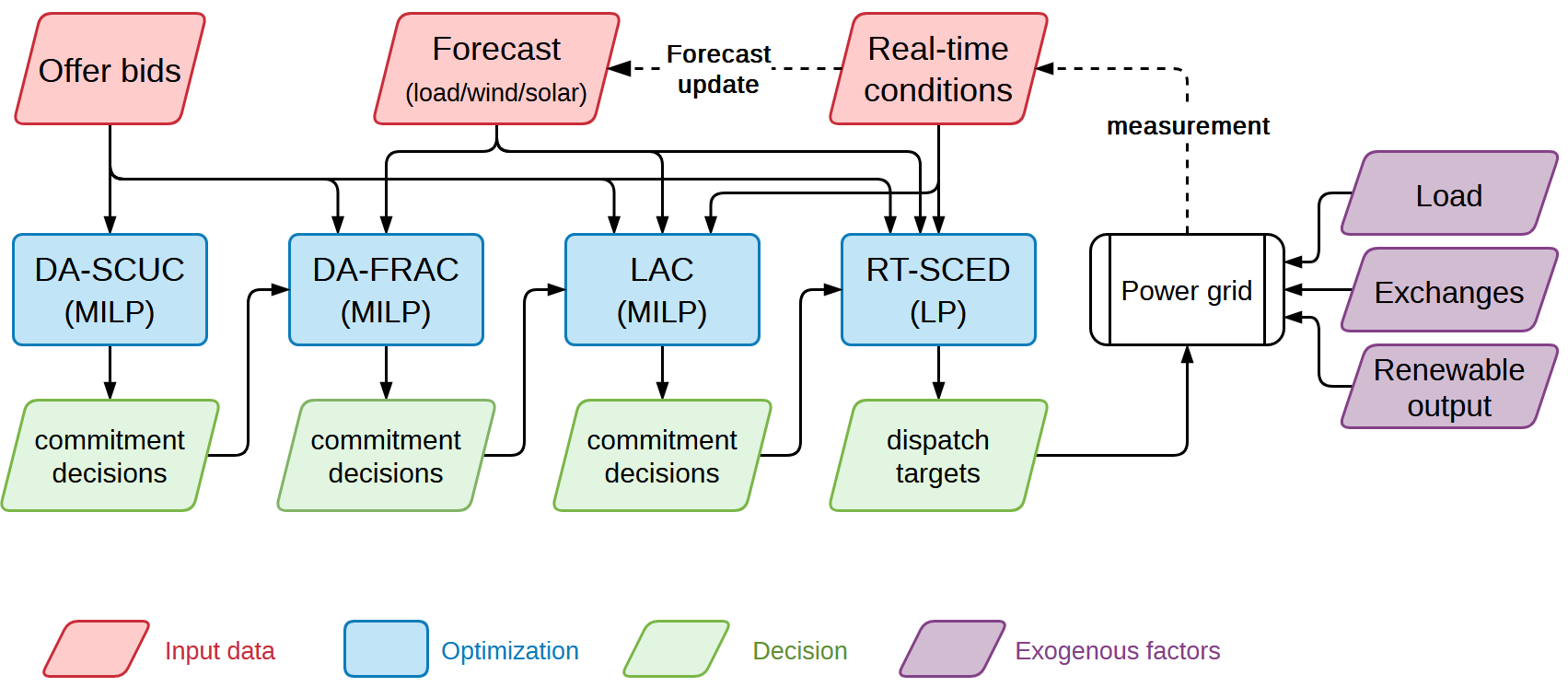In a grid with a significant share of renewable generation, operators will need additional tools to evaluate the operational risk due to the increased volatility in load and generation. The computational requirements of the forward uncertainty propagation problem, which must solve numerous security-constrained economic dispatch (SCED) optimizations, is a major barrier for such real-time risk assessment. This paper proposes a Just-In-Time Risk Assessment Learning Framework (JITRALF) as an alternative. JITRALF trains risk surrogates, one for each hour in the day, using Machine Learning (ML) to predict the quantities needed to estimate risk, without explicitly solving the SCED problem. This significantly reduces the computational burden of the forward uncertainty propagation and allows for fast, real-time risk estimation. The paper also proposes a novel, asymmetric loss function and shows that models trained using the asymmetric loss perform better than those using symmetric loss functions. JITRALF is evaluated on the French transmission system for assessing the risk of insufficient operating reserves, the risk of load shedding, and the expected operating cost.
翻译:在可再生能源发电占很大比例的电网中,运营商将需要更多的工具来评估由于负荷和发电的波动性增加而导致的业务风险。前期不确定性传播问题的计算要求必须解决众多受安保限制的经济发送(SCED)优化,这是实时风险评估的主要障碍。本文件建议采用 " 实时风险评估学习框架(JITRALF) ",作为替代方案。JITRALF每天每一小时培训一个风险代孕员,利用机器学习(ML)来预测估计风险所需的数量,而没有明确解决SCED问题。这大大减轻了前期不确定性传播的计算负担,并允许快速实时估算风险。该文件还提出了一个新的不对称损失功能,并表明使用不对称损失培训的模式比使用对称损失功能的模式效果更好。JITRALF在法国的传输系统上进行了评价,以评估业务储备不足、装载风险和预期运作成本的风险。

